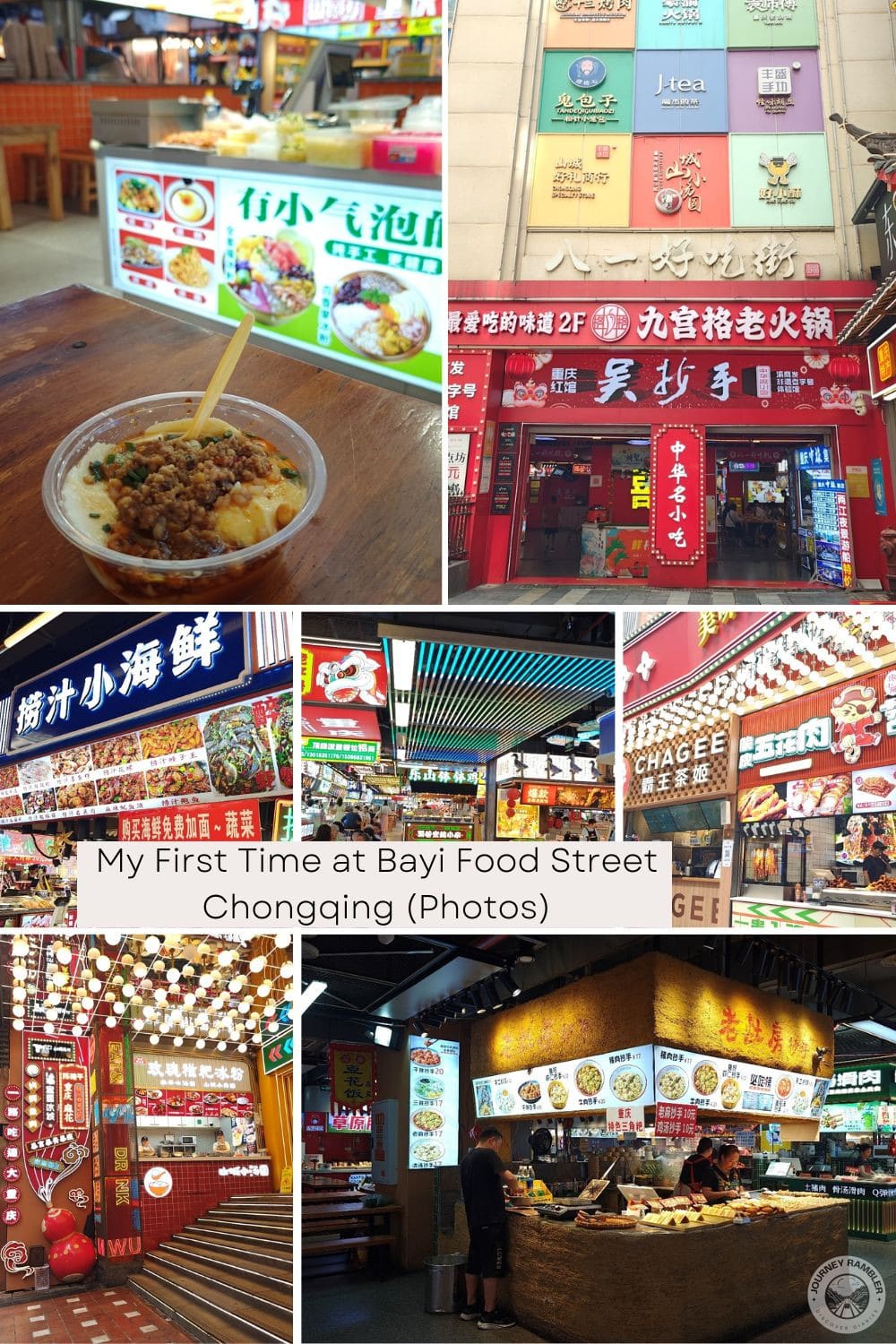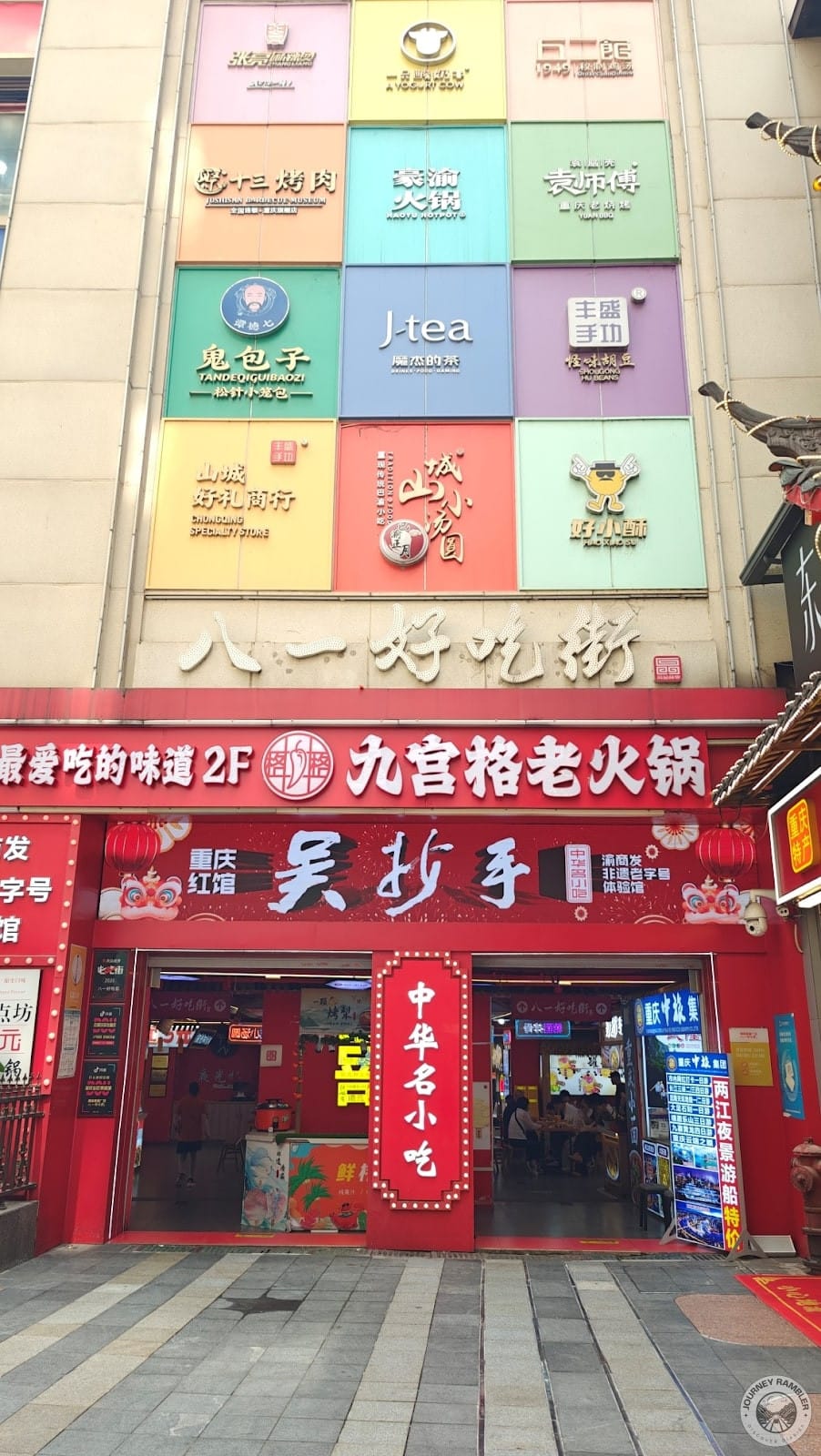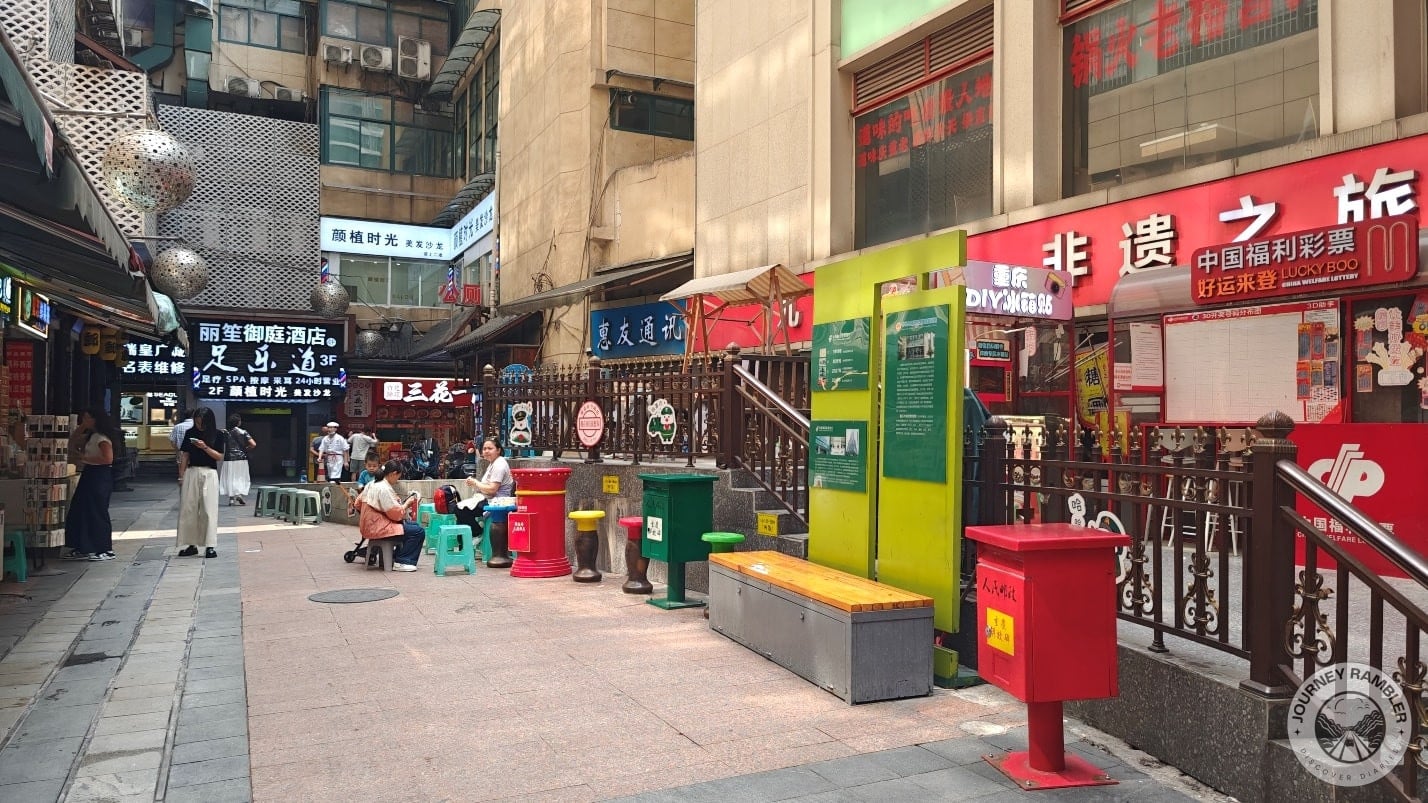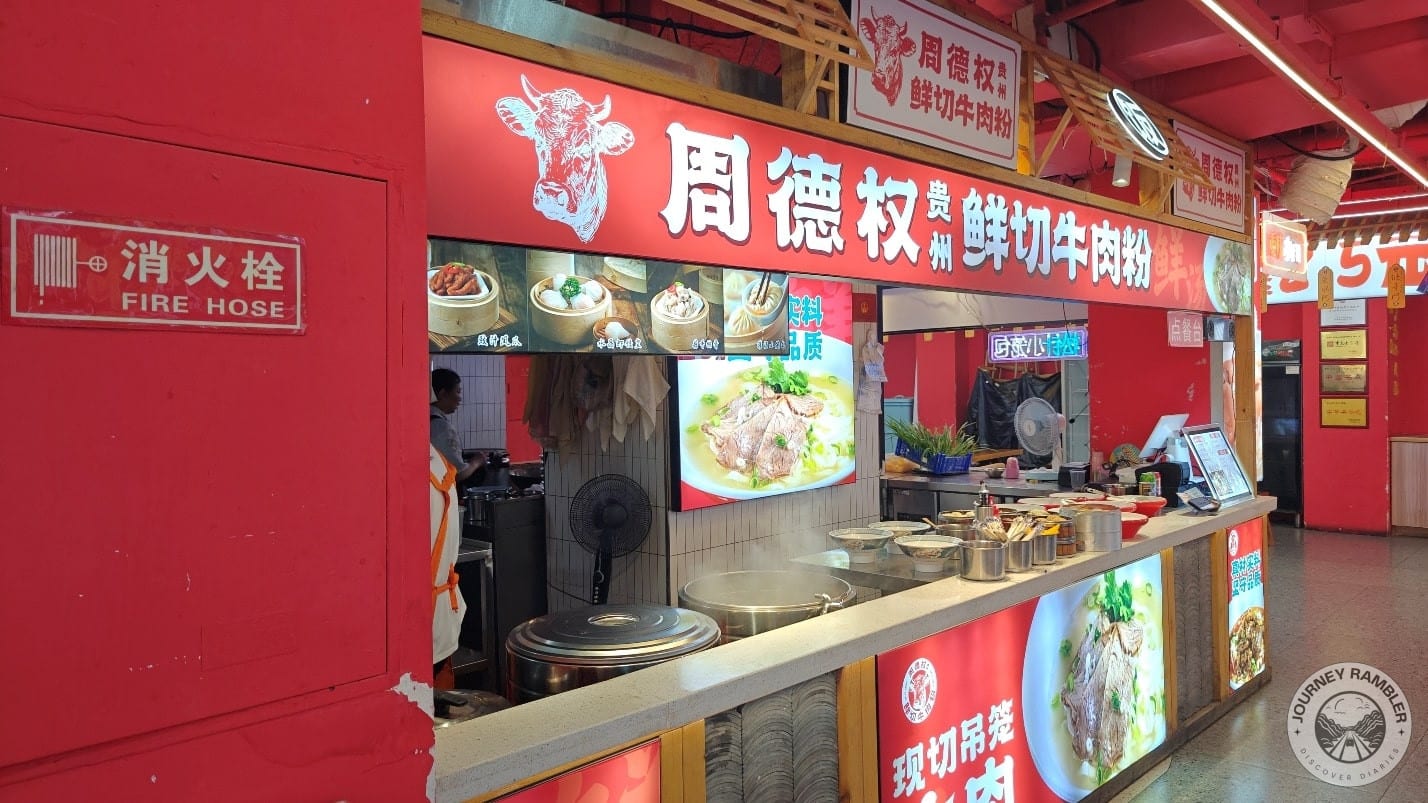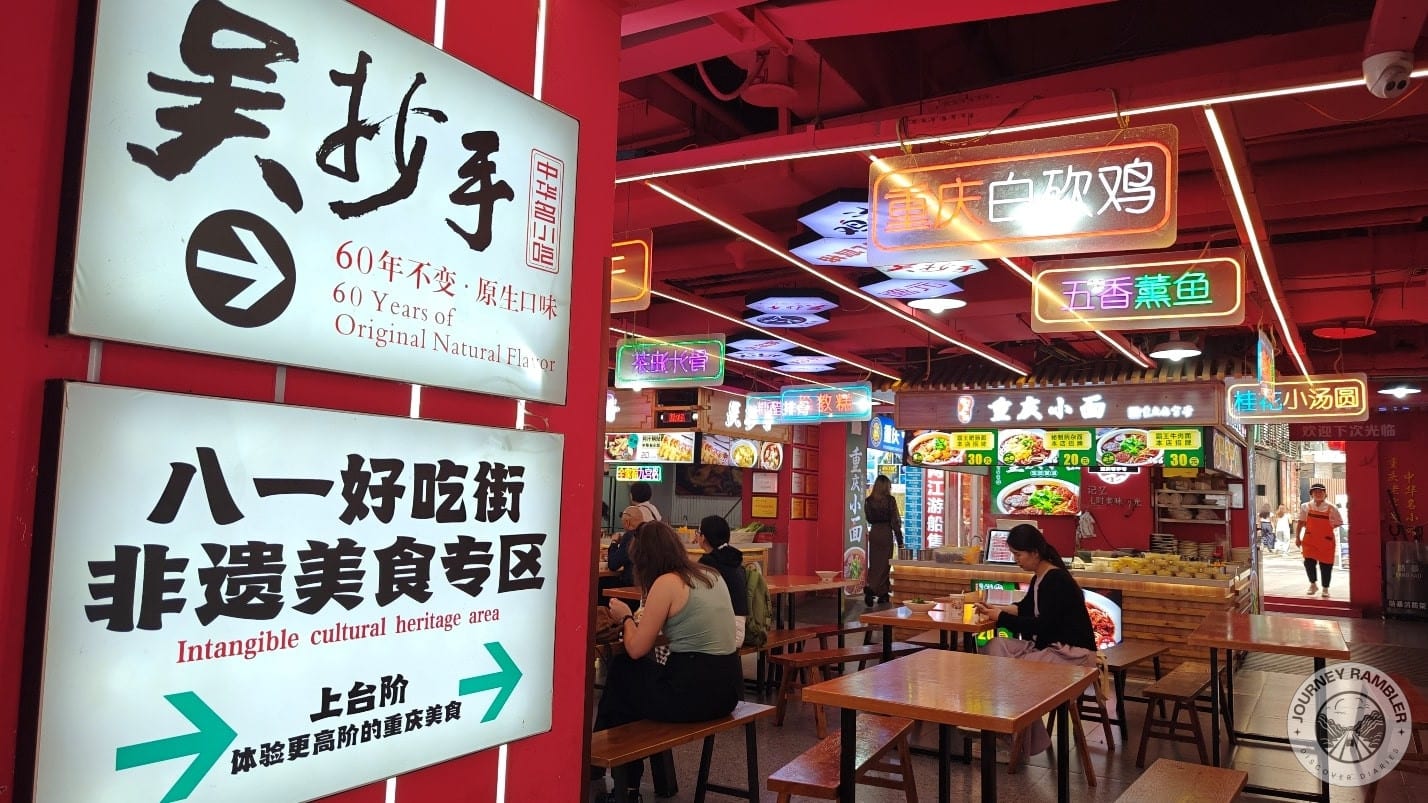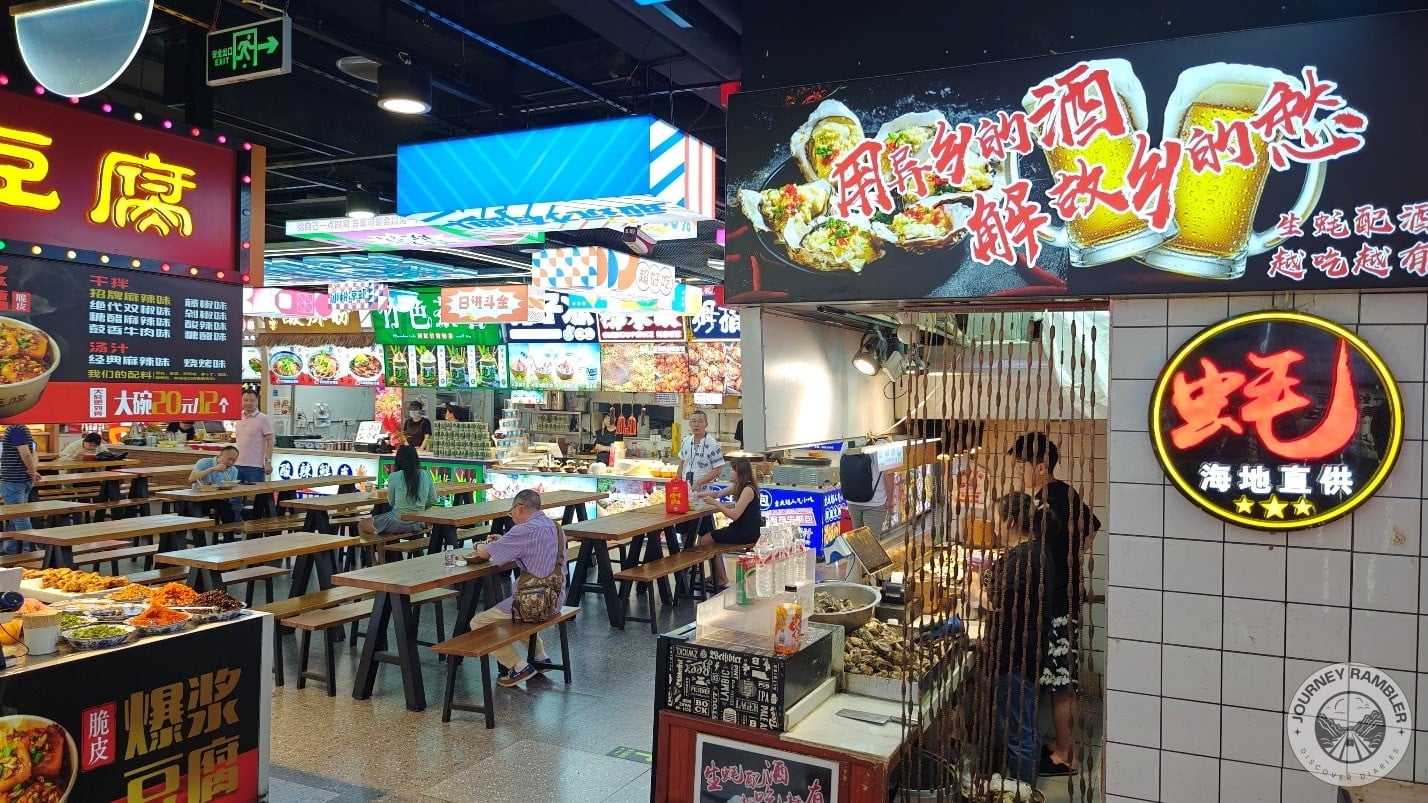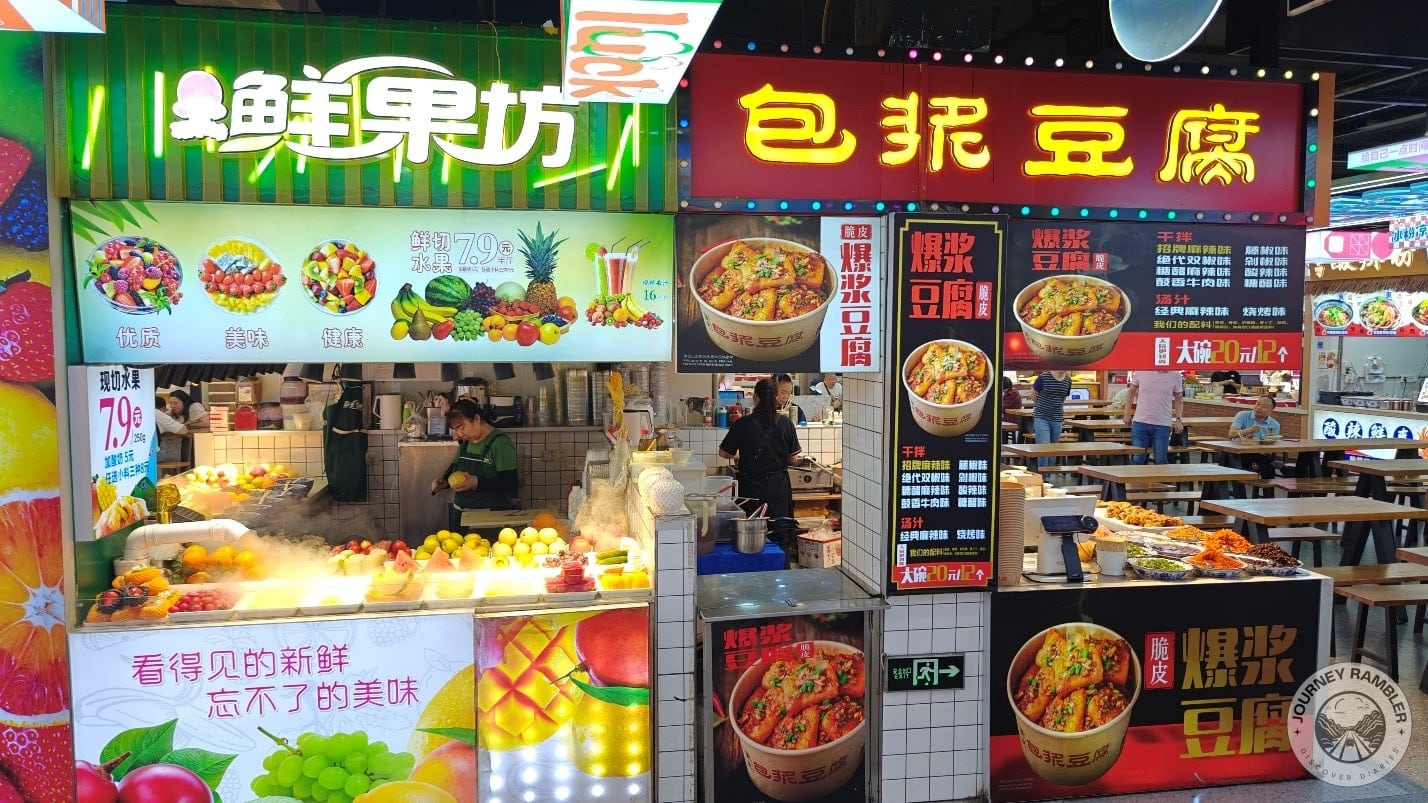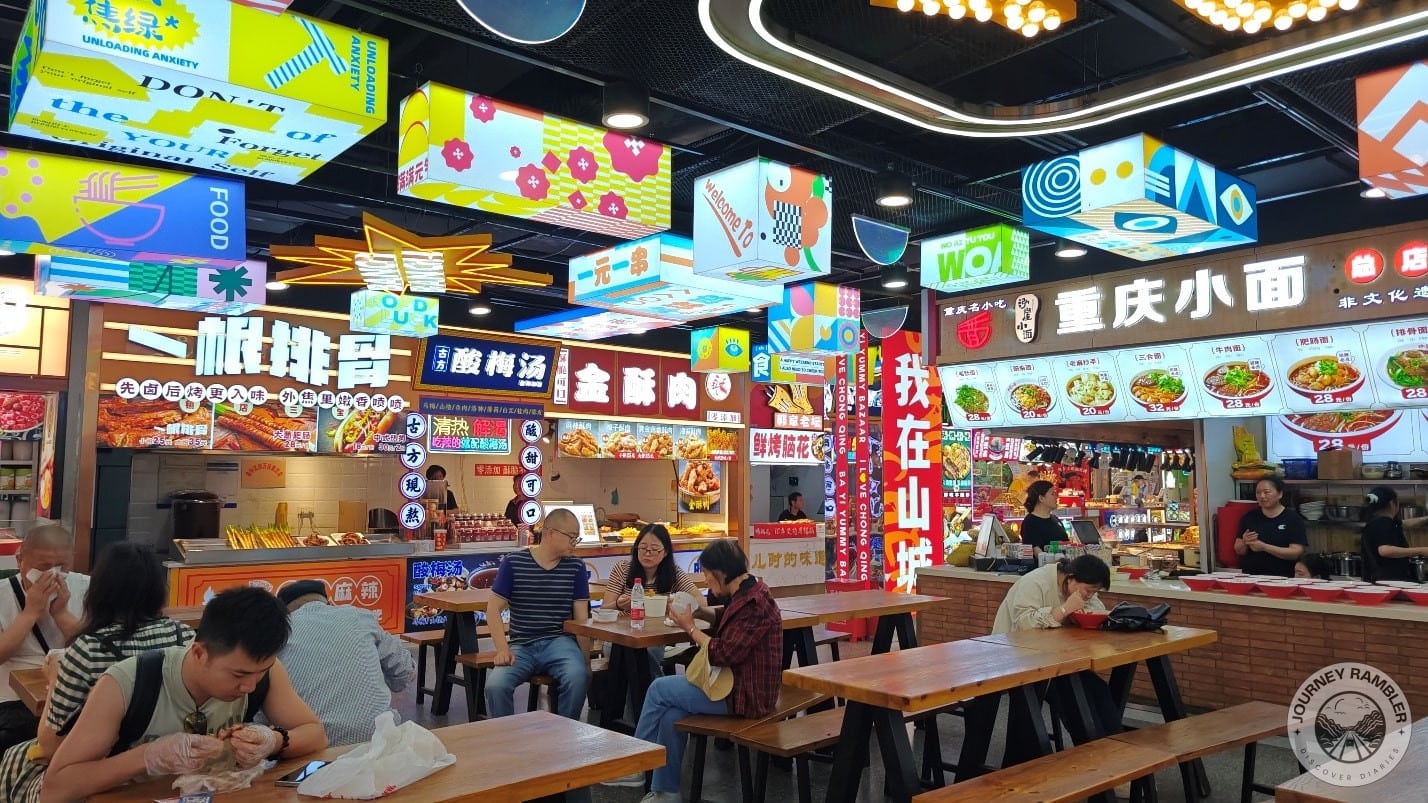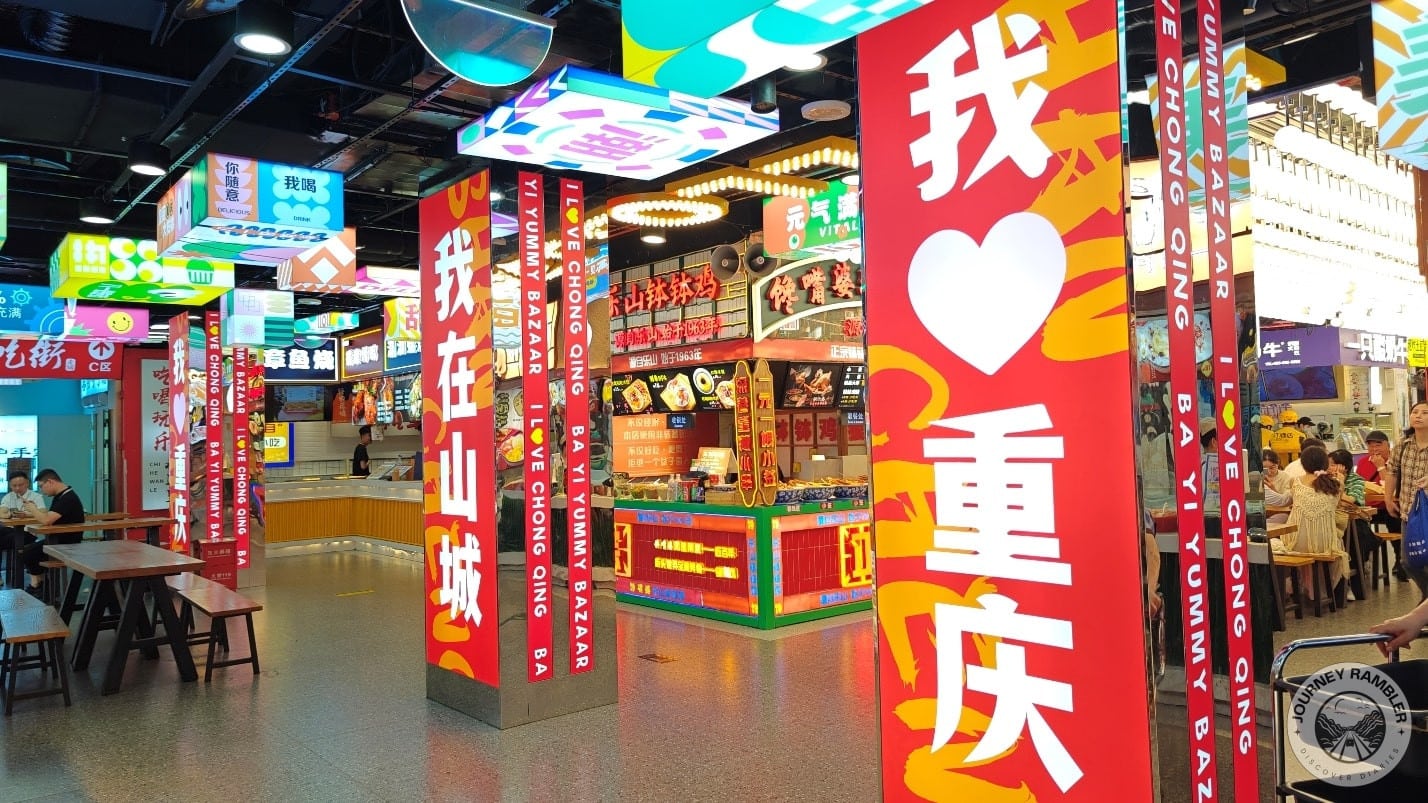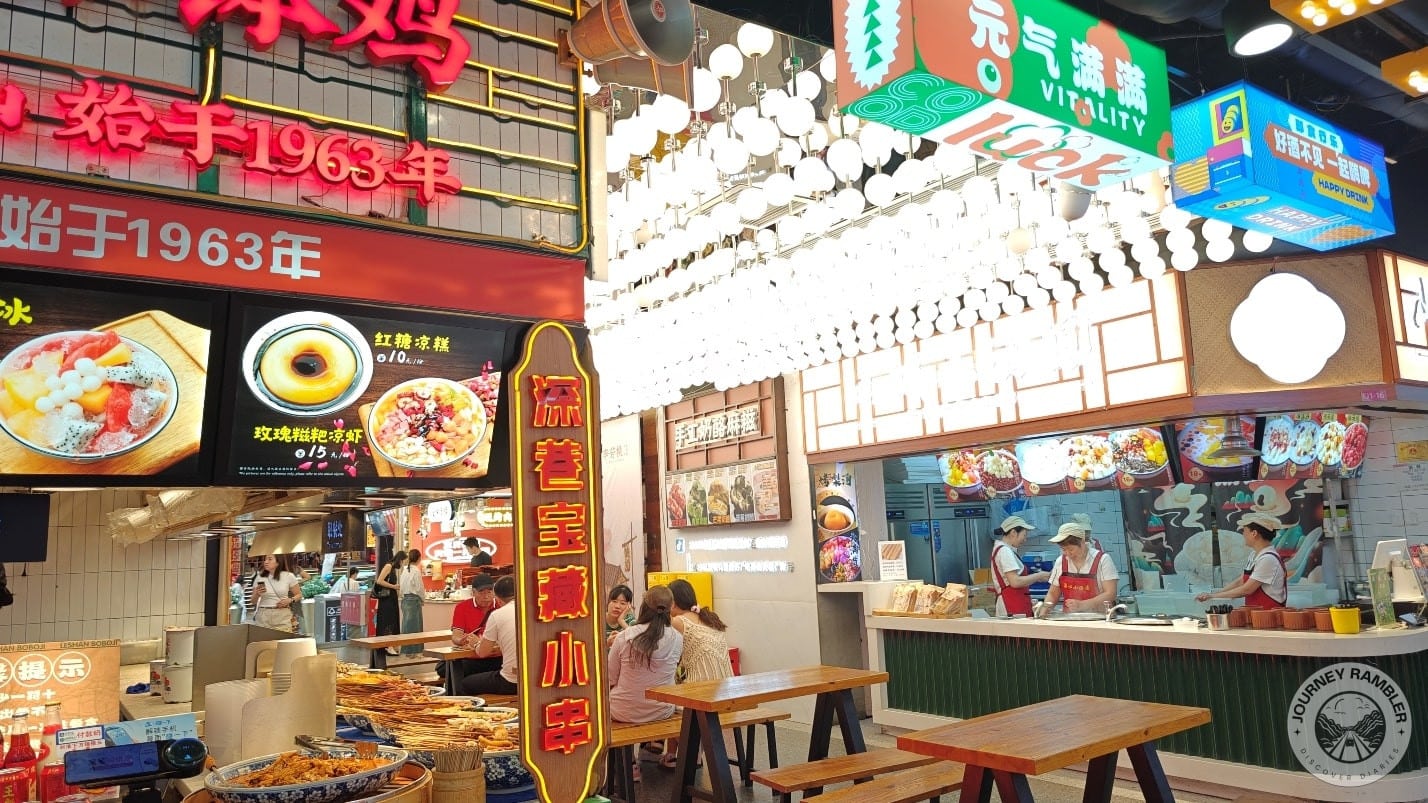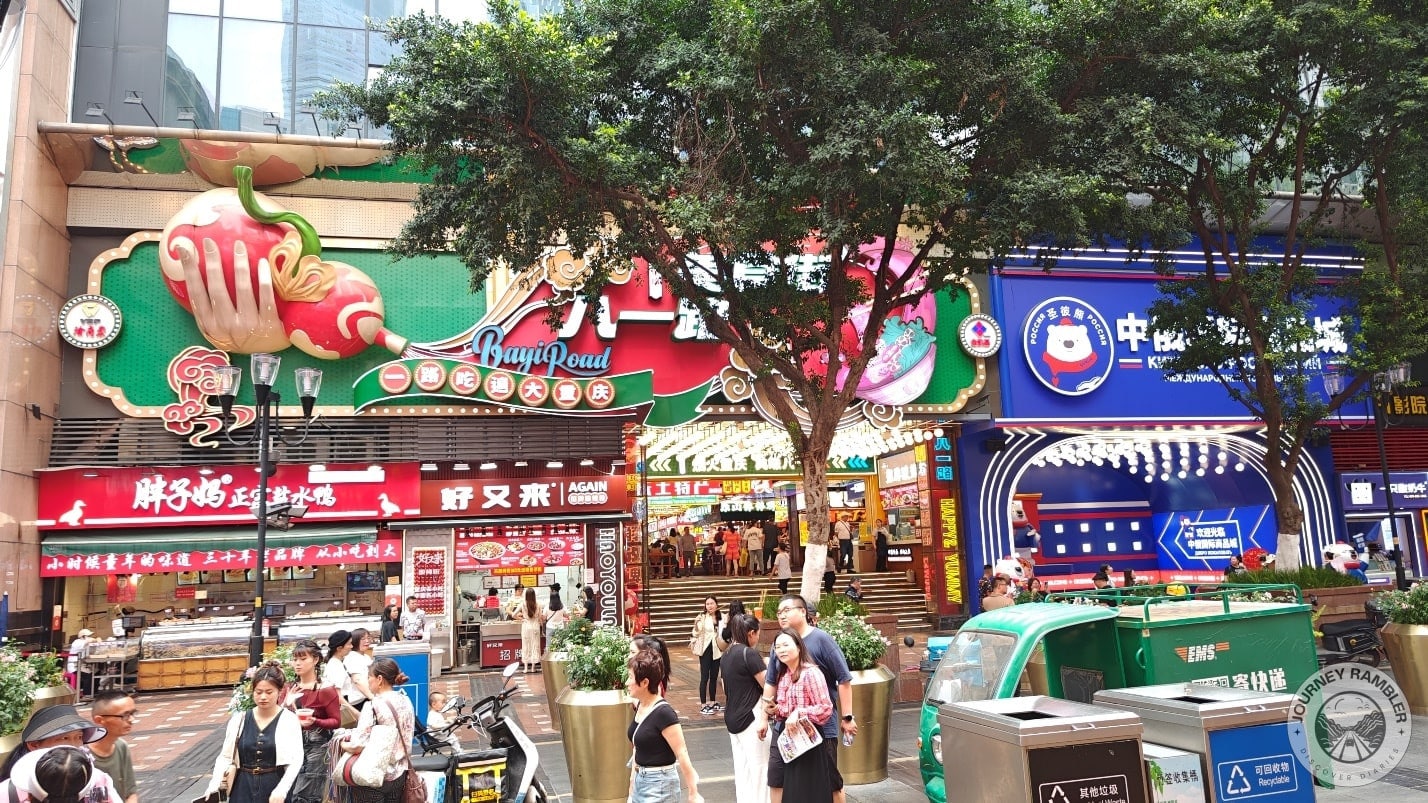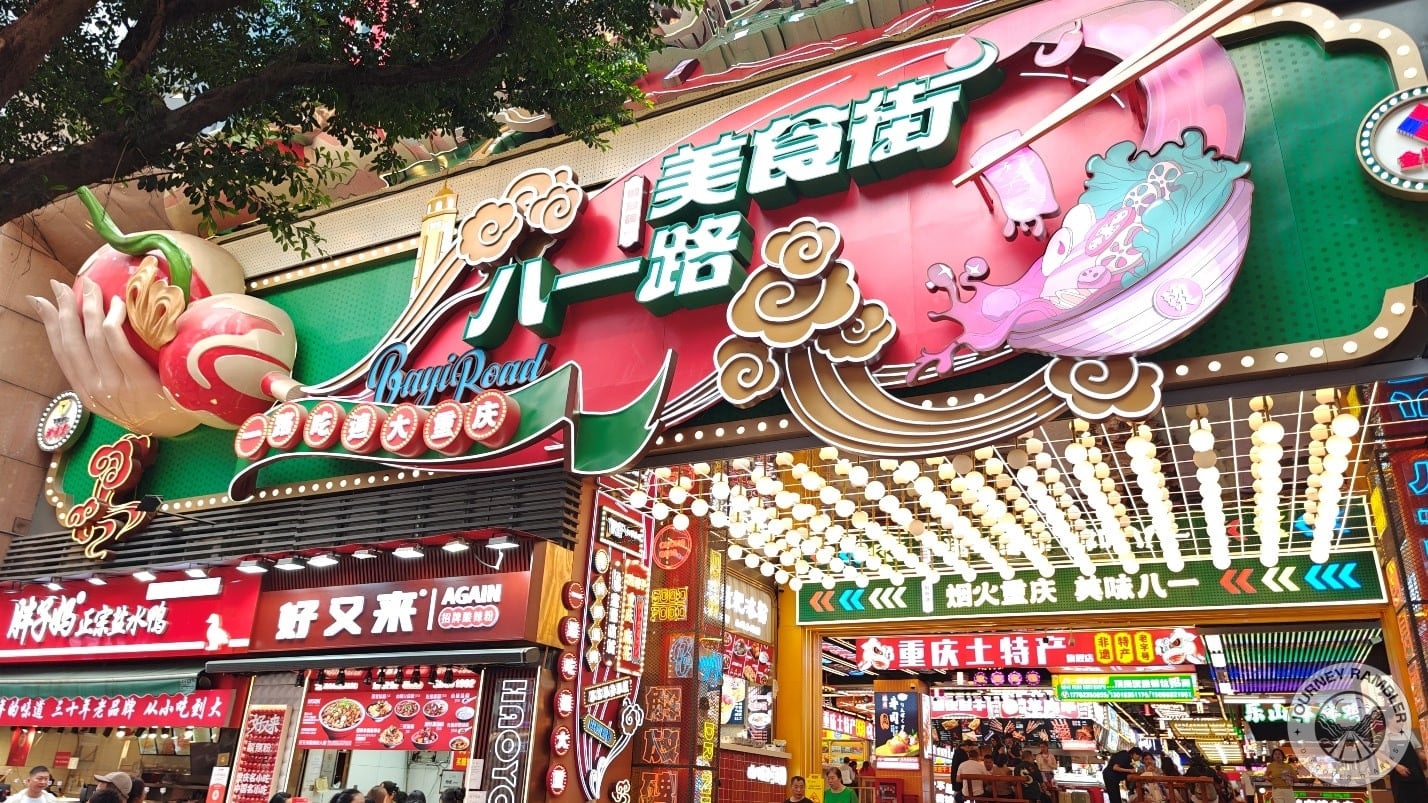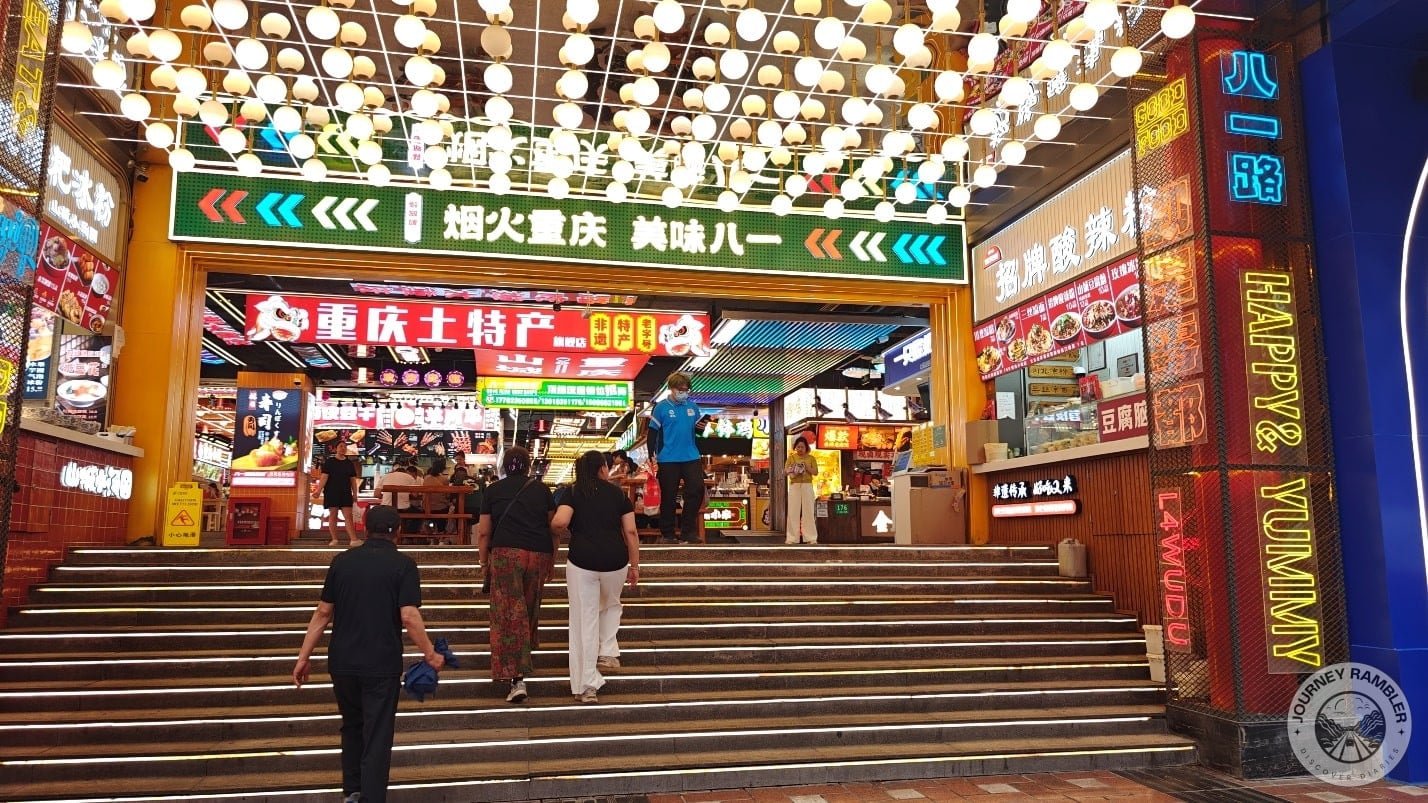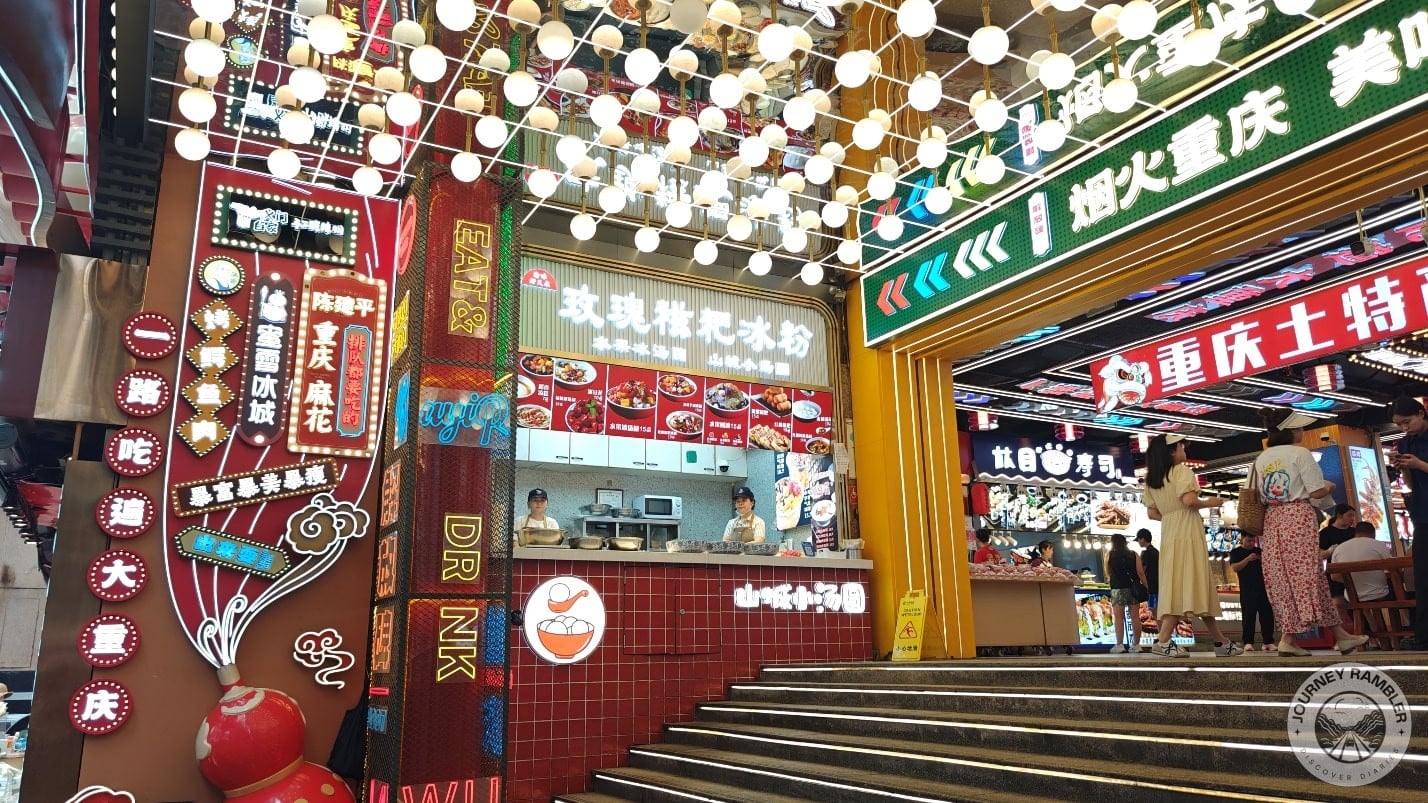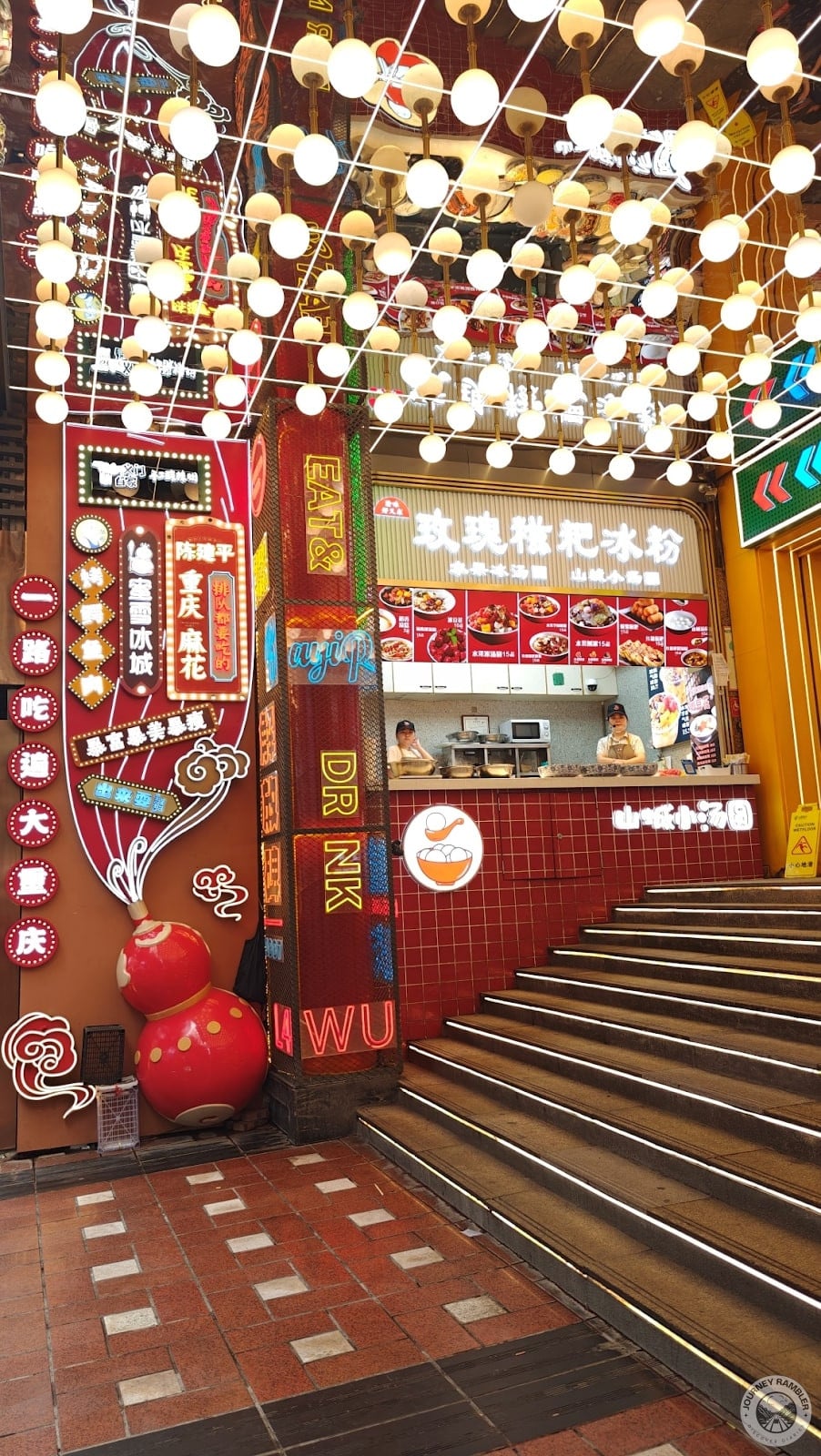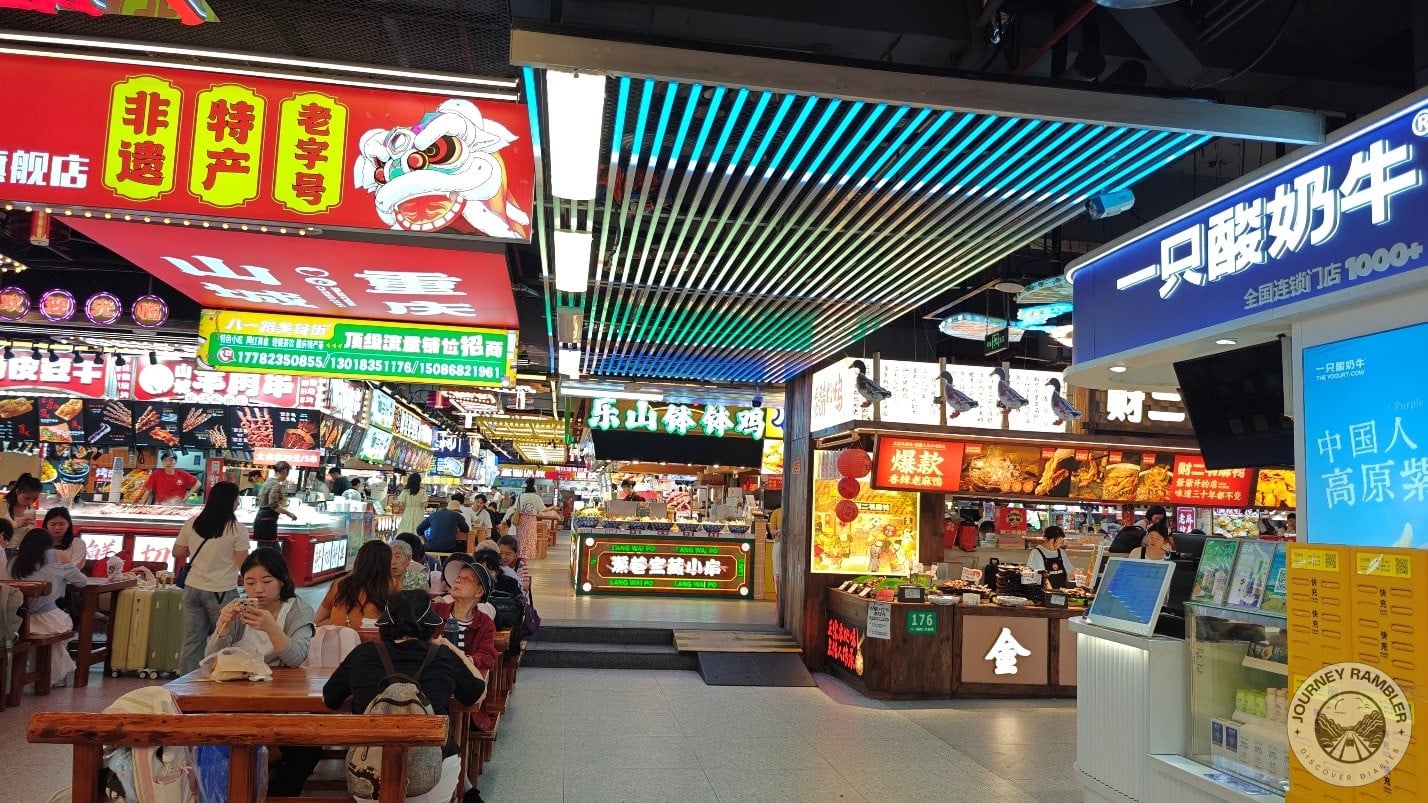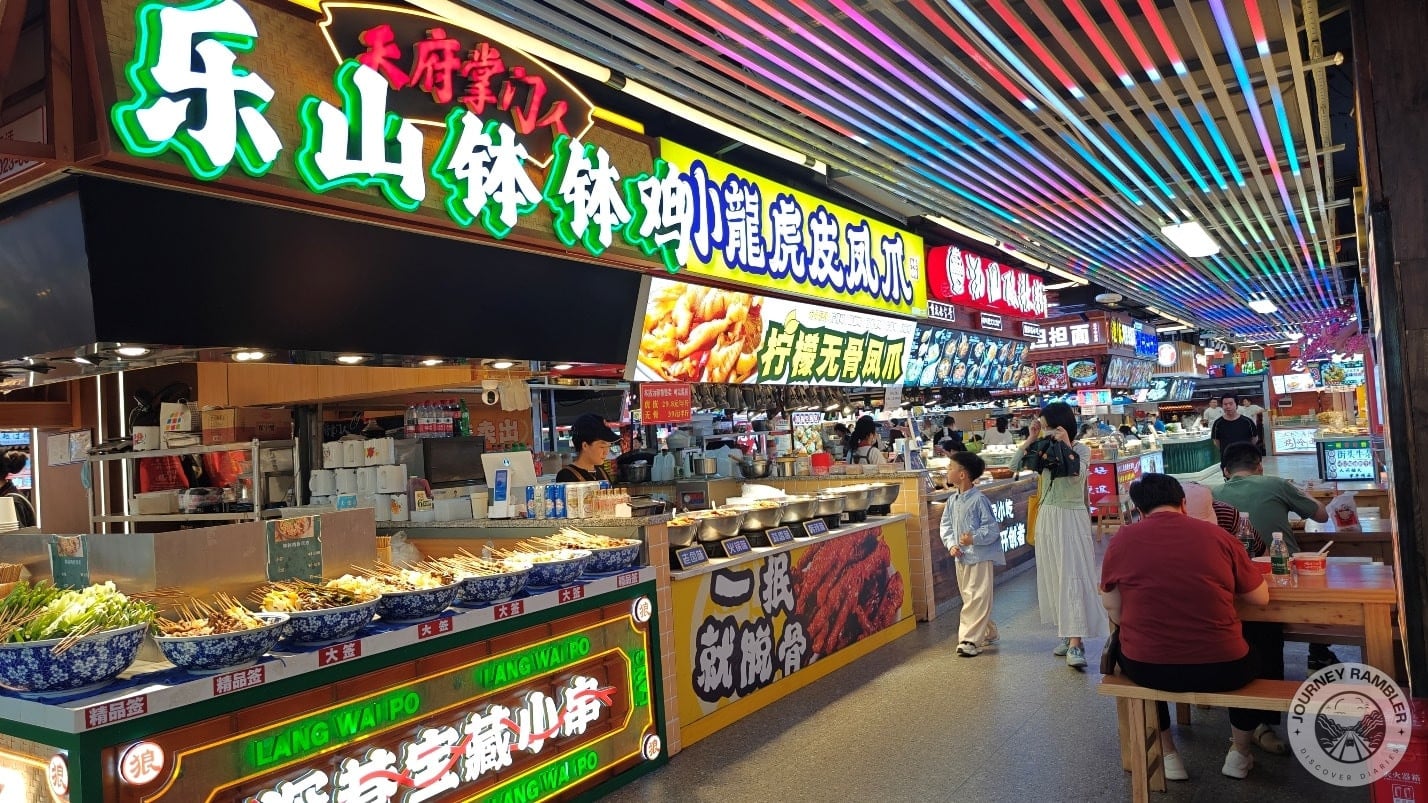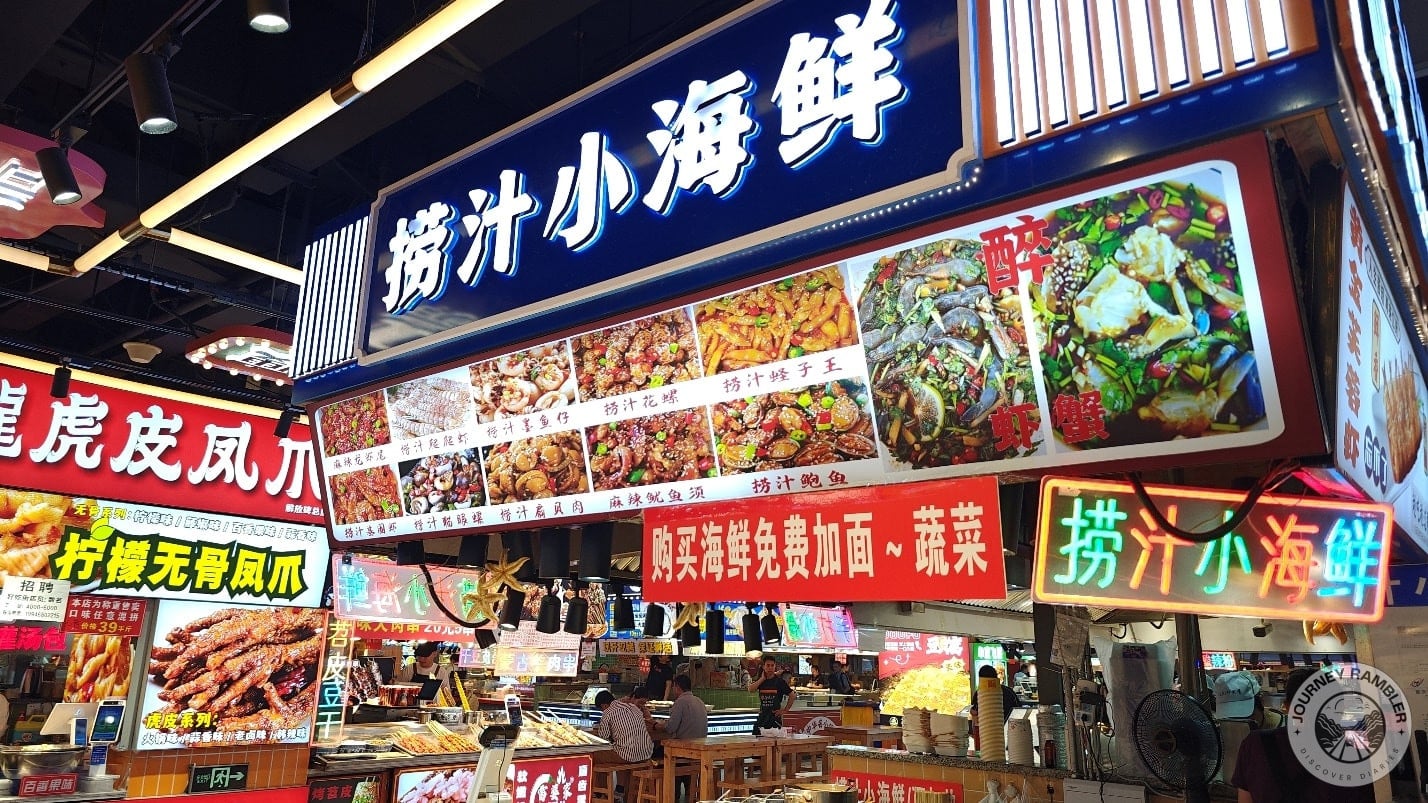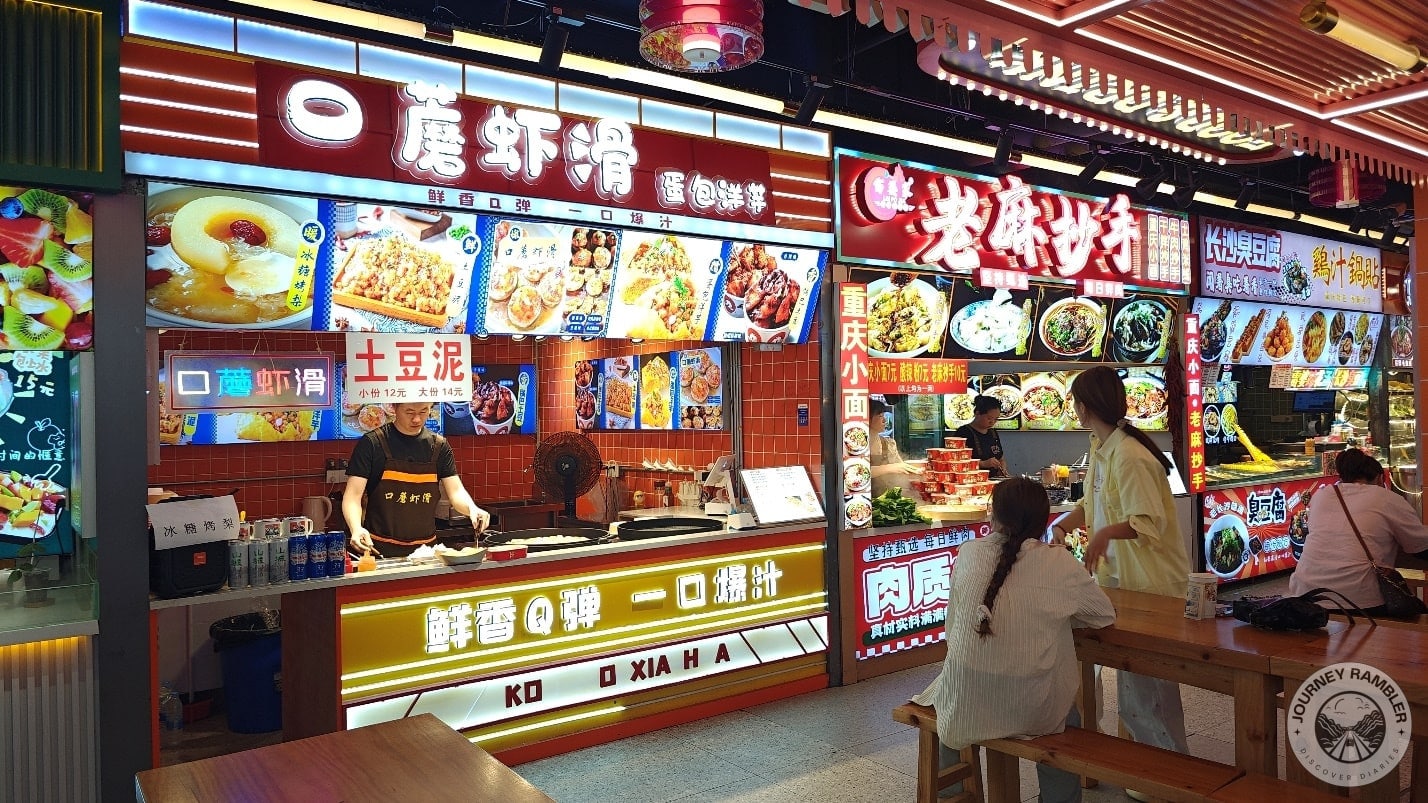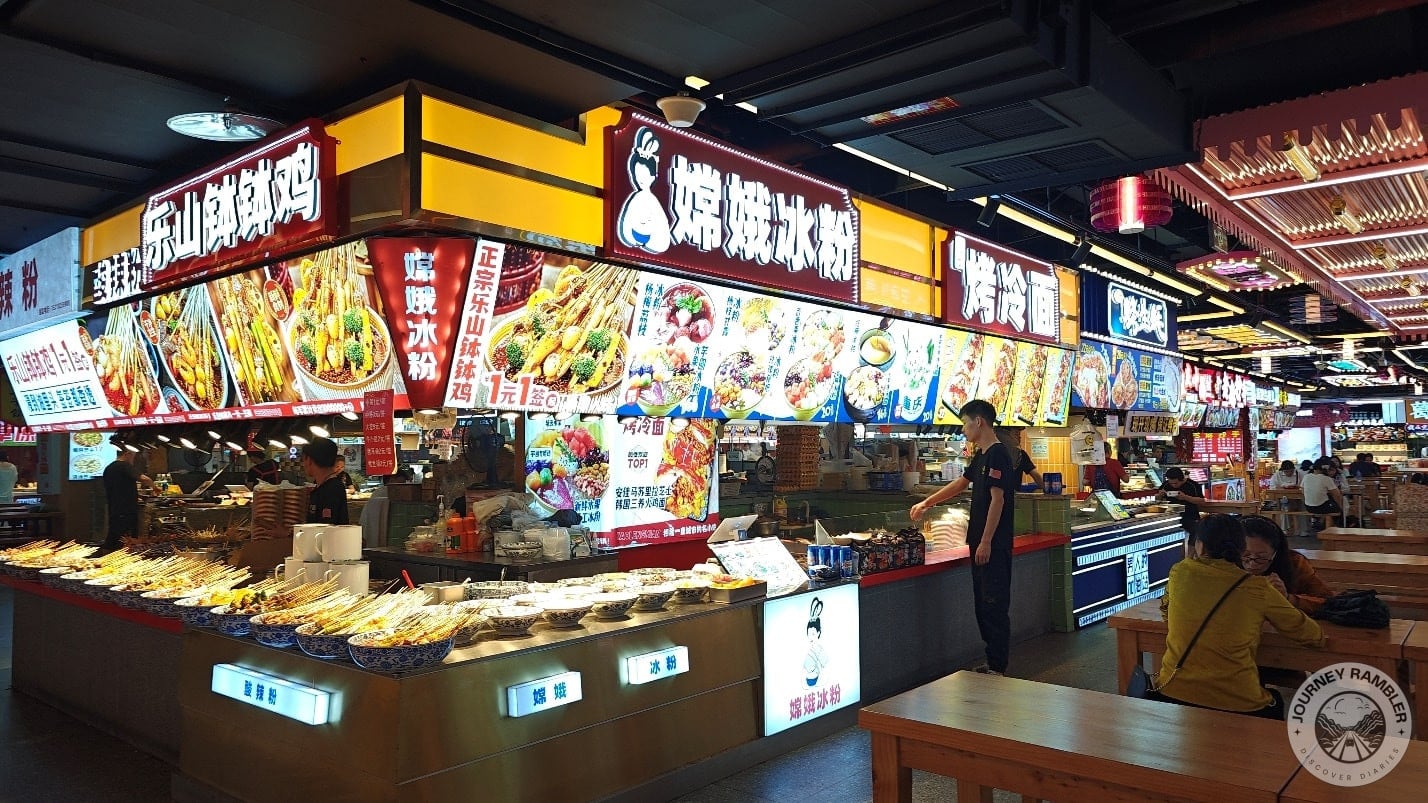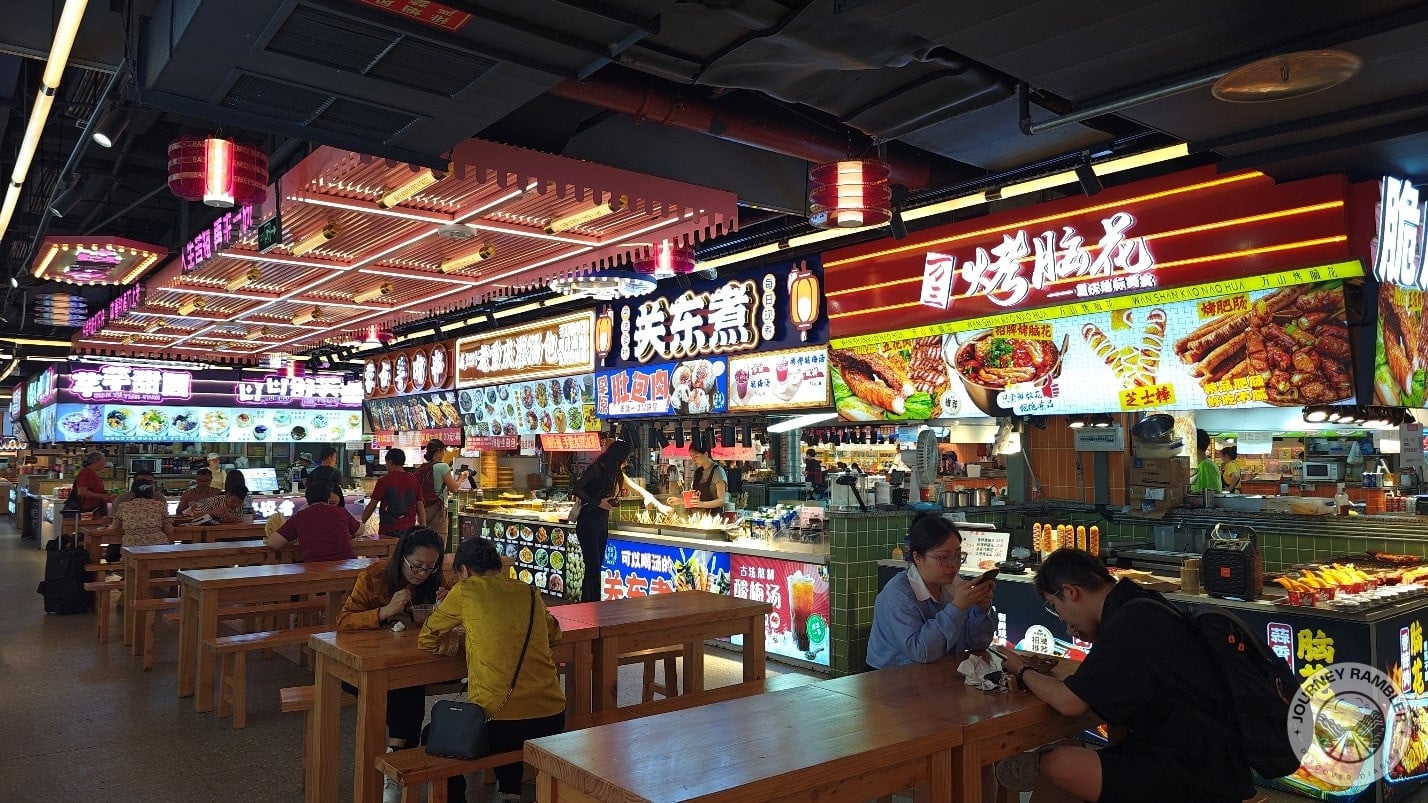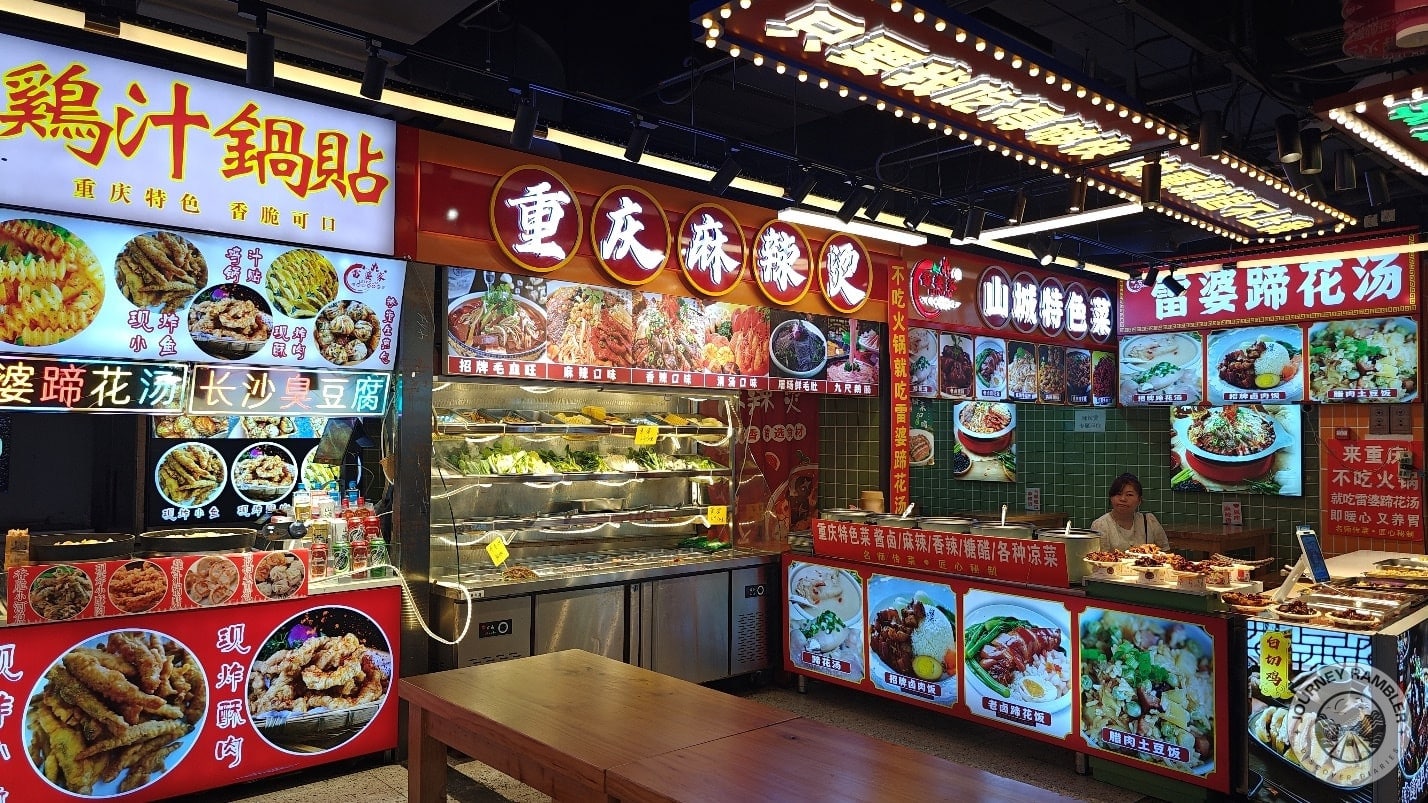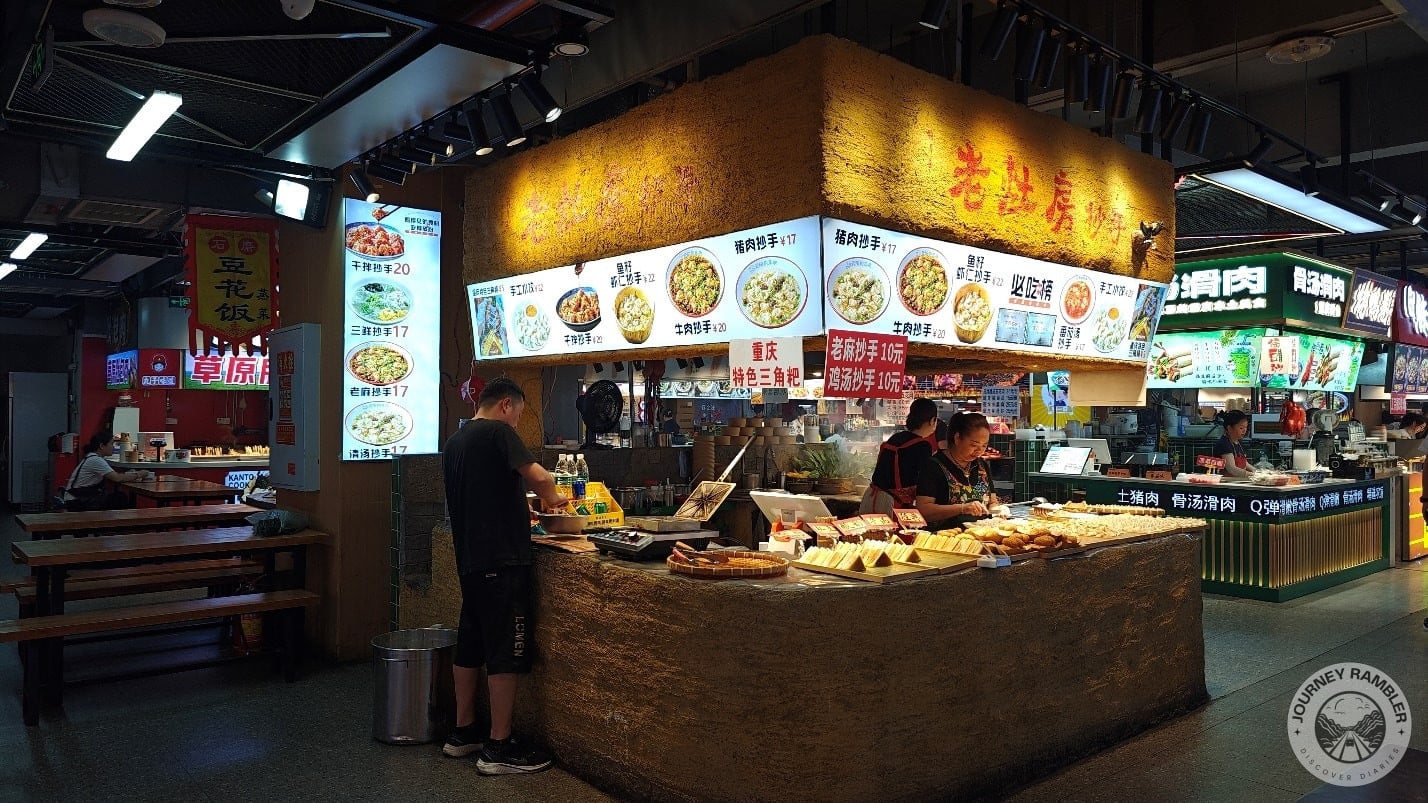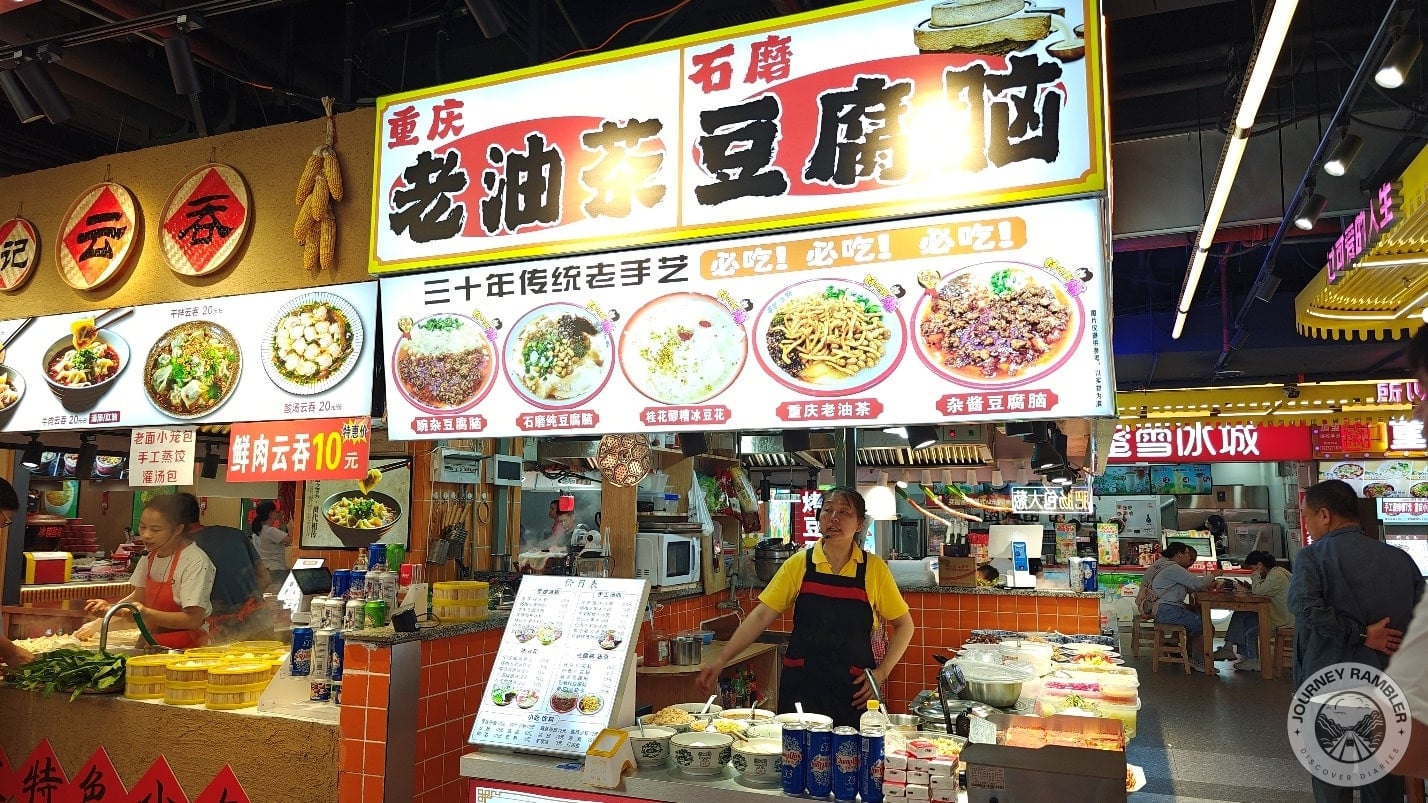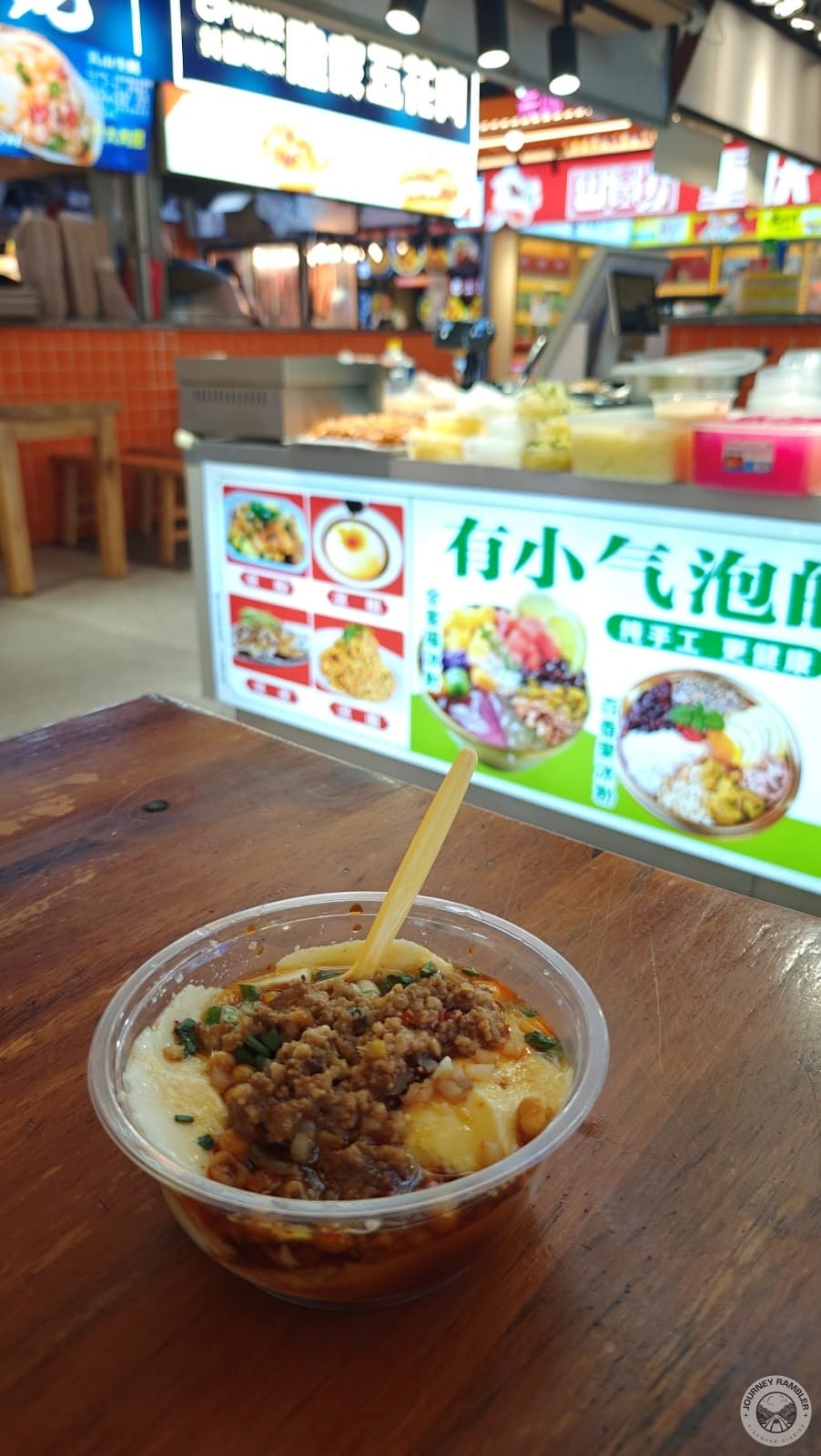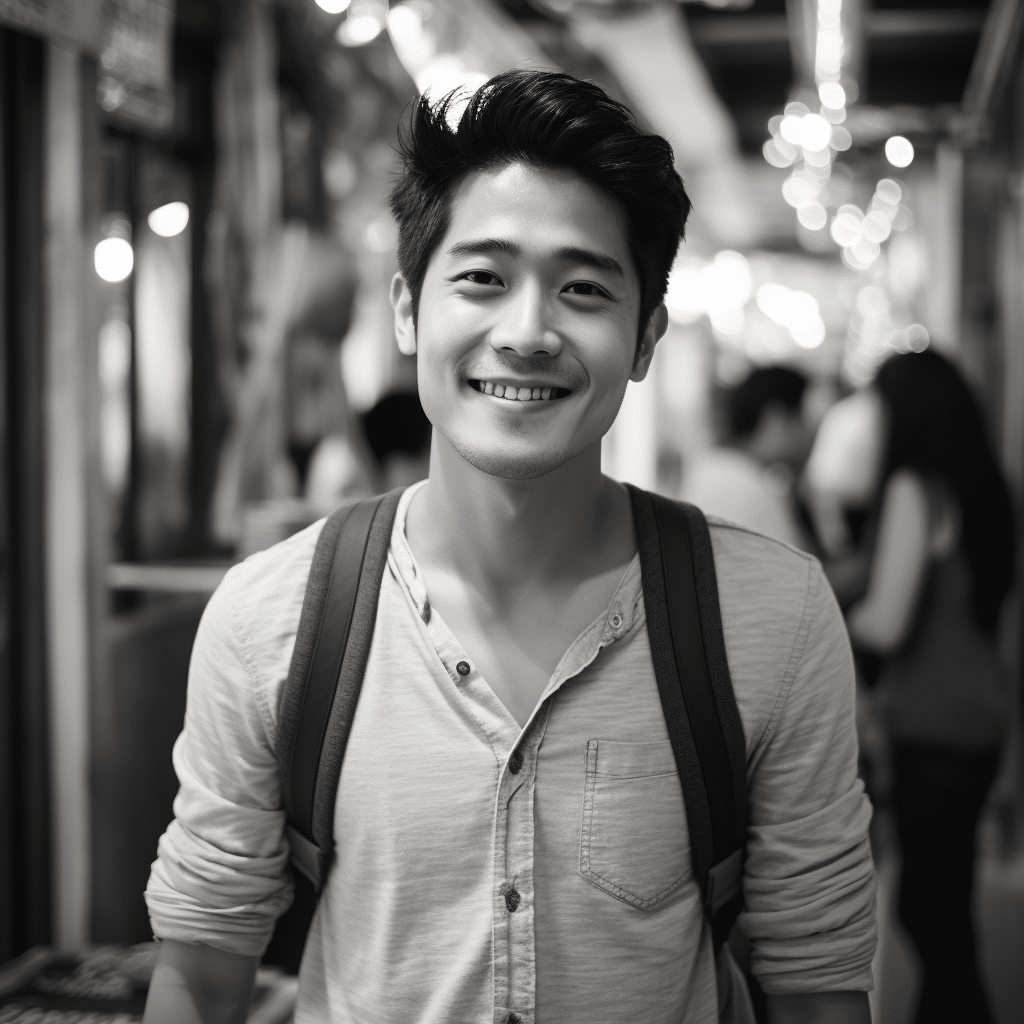I really was not expecting much going into Bayi Food Street in Chongqing but I still ended up getting quite impressed. It was my first time here and I was told that it was the most popular food street in Chongqing (but don’t forget to check out the Guanyin Bridge Food Street). Now I’m usually very skeptical of these kinds of claims but it turns out, this was actually true. There are so many food stalls and establishments here that it’s actually kind of crazy.
Bayi Food Street: The Most Popular Food Street in Chongqing’s Jiefangbei CBD
So Bayi Food Street is not just one establishment but rather a designated area with possibly hundreds of establishments selling mainly Chongqing style Sichuan dishes. These establishments are then typically found in buildings such as in the image above.
Food isn’t the only thing that’s plentiful here though. I noticed that visitors were also busy taking pictures of the buildings and the establishments. One thing that really stood out for me was just the colors used in the signages as well as for the buildings themselves. It’s probably one reason why it’s also called a haven for street photographers.
Anyway, I decided to get inside the building earlier to check out what it had to offer. This stall was one of the first things I noticed largely because of the wonderful smells that were coming from it. Using the translation app on my phone, I found out that the name of the shop was Zhou Dequan and that it specialized in Freshly Sliced Beef Noodles. Other than noodles, I also saw that they had some dim sum dishes.
Here’s a glimpse of one of the dining areas here. This is a shared dining area so what you’d typically do is order from one of the stalls then eat anywhere on these tables. In this manner, it’s very similar to a food court.

free chongqing itinerary
Visiting Chongqing?
Get my original 4–5 day, 13-page Chongqing itinerary in PDF format, based on my real trip, with many photos, hotel, and food tips. Enter your email to receive it free.
We won't send you spam. Unsubscribe at any time.
That said, I don’t think I’ve ever gone to a food court that has these many establishments with such varied dishes being offered. Moreover, the colors a lot of these establishments use is just so out there I actually love it. I’m so used to seeing the minimalist trappings of Western food establishments that these colorful signages have become like a breath of fresh air.
I said earlier that you get a lot of variety here and this picture is a perfect example of that. On the left is a stall that sells fresh fruits and fruit juices which is in contrast to the stall specializing in Baojiang Tofu to its right.
Chongqing Hotel Recommendations Based on My Own Stay
🔹 Ascott Raffles City Chongqing
🔹 Westin Chongqing Liberation Square
Top Activities in Chongqing
Wulong Tiansheng Three Bridges
Banquet in Ba Kingdom Royal Feast
As you can see, there’s already a decent number of people here who I assume are mostly locals. From this vantage point, you’ll also get to see stalls selling Chongqing Xiaomian, Jin Su Rou, and Suanmeitang just to name a few.
One thing that I particularly liked about Bayi Food Street is that it looks like a tourist trap (maybe like Hongyadong Folk Custom Scene Area) but it actually isn’t one. You’ll find plenty of these signs targeted mainly at tourists but a lot of the food that’s served here are far from overpriced.
I don’t think it’s really a deal breaker but I do appreciate how well lit the dining areas here are. When I initially came inside, it seemed like the lights were a little dim. As I moved further indoors I then noticed the lighting was just right. Anyway, this particular area features stalls specializing in snacks and skewers. The stall in the foreground has liang gao and what looked to be a rice cake meal.
So this is what I meant when I said there were plenty of buildings similar to the very first picture here. Additionally, there are street facing stalls where you can buy food and then eat while walking around the area.
Here are some of the street facing stalls I was talking about in the previous image. The rightmost stall is known for selling crispy pork belly as well as a sweet potato noodle and dried tofu dish. Next to it is a stall by popular Sichuan based milk tea company Chagee.
Now if I didn’t know any better, I would have actually thought I was in Las Vegas or Reno. This particular area actually looks a lot more festive which is why I probably gravitated towards it.
So the sign above the entrance says something along the lines of ‘Fireworks Chongqing, Delicious August First’. Initially I was intrigued about what it meant so I tried searching it up online. Apparently, the first phrase references Chongqing style cuisine which is known for being spicy (and the use of Sichuan peppercorns similar to Sichuan cuisine). As for August 1st, it’s when China commemorates the founding of its PLA.
Anyway, I decided to check out the stalls near the entrance and saw these stalls. On the right is a stall called Hao You Lai which specializes in hot and sour noodles. Right next to this is a stall called Fatty Mama’s Authentic Salted Duck. As you can tell by its name, the stall’s specialty is salted duck as well as the liver, gizzards, and nearly every other part of the bird.
On this side is another stall that specializes in Rose Bingfen. This actually seems like it’s popular as I’ve seen other stalls that offer a variation of it. Considering how spicy Chongqing food can be though, I think I kind of understand the popularity of this and similar stalls.
Beside the bingfen stall was this sign that really reminded me of Las Vegas for some reason. Instead of casinos though, it’s actually promoting the establishments that you’ll find inside. Examples of the establishments you can find inside include Mixue Ice Cream and Tea and Chen Jiaping Old Street Chen Mahua.
Going inside the building, I again was greeted by a rather busy dining area. Thinking about it now, might have even been busier than the first building that I had been to.
This section featured stalls that sold Leshan Bobo Chicken like the one on the left in this image. Adjacent to that stall is another one that sells Tiger Skin Chicken Feet that it advertises as being cartilaginous and the bone being brittle (the signage with the image of the chicken feet was honestly tempting).
If you’re not too keen on beef and poultry products, there are also stalls here that sell fresh seafood. This one pictured above specializes in seafood dishes with added special sauce. Examples of seafood that you can order here include whelk, abalone, and squid tentacles (just to name a few).
Continuing with the stalls that offer seafood, the one on the left in this image specializes in what I think is shrimp stuffed mushroom. Right next to it, is a stall specializing in Sichuan style Lao Ma Chaoshou which is wonton dish characterized by its spicy as well as numbing flavor.
This one is a stall that specializes in Bingfen, Baked Cold Noodles, and authentic Leshan Bobo Chicken. I’m not quite sure but it seems like the stall is shared with the sellers of the Bingfen, Bobo Chicken, and noodles.
Across the dining area from the stall earlier is another stall that specializes in pigs brains. Yeah, I know that sounds gnarly but this is actually a delicacy here. Essentially, the pig’s brains are grilled then seasoned with spices (including Sichuan peppercorns) to give it a really unique and creamy flavor. If you think that’s a little too much then you could just scoot on over to the next stall which specializes in oden.
Here are another set of stalls that offer relatively safe Sichuan style dishes that don’t have any animal gray matter. The leftmost of these specializes in chicken potstickers. Next to it is a stall that offers Chongqing Ma La Tang which is essentially a hot pot dish (check out my article about the Zhoushixiong hot pot here in Chongqing). Finally, the rightmost stall is one that offers Pig Trotters Soup which is another popular Sichuan dish (Chongqing used to be a part of Sichuan so its cuisine is heavily influenced by the latter).
This unassuming stall specializes in a special triangular bread as well as different flavors of wonton/dumplings. This was farther away from the center of the dining area so it wasn’t as busy here. Even with its location, I did notice that it still had people regularly walking up to the counter to order from them.
With all the walking that I’ve been doing, I finally decided to get food for myself. I decided to get one from this stall which specialized in dishes that featured tofu pudding as an ingredient. The stall advertises that it’s been around for 30 years and the food that they serve are must-eats.
Intrigued, I decided to get an order of their spicy tofu pudding and ended up actually liking it. Maybe it was because I was hungry from all the walking that this meal felt particularly filling. With this meal, my visit to Bayi Food Street was concluded.
I must say, I was really impressed with what I saw, tasted, and smelled here in Bayi Food Street in Chongqing’s Jiefangbei CBD (or if want you can have a different dining experience at the Chongqing Banquet in Ba Kingdom). I think a great description of this place is that it’s a feast for the senses. Even if you don’t eat here, I think you’ll still end up enjoying the place thanks to its energy and just how colorful it is. That said, expect for there to be plenty of people here and that might either be a good or bad thing. Overall, this was a fun visit that I think I’ll do again if given the chance. Ever been to Bayi Food Street? How was your experience there? Head on over to the comments section and share them with us!

